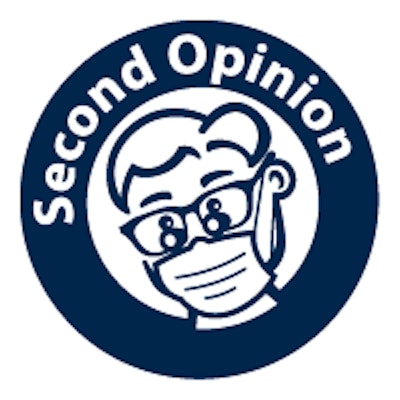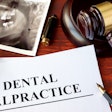
The vast majority of state regulatory dental boards retain legal counsel selected from a pool of state licensing attorneys with no specific dental experience. Often, the experience of these dental board attorneys is limited to administrative law (as opposed to civil or criminal law). But too often, dental board attorneys are ill-prepared to defend even straightforward dental cases in administrative proceedings. They infrequently offer adequate assistance to state or federal prosecutors for potential insurance fraud, consumer fraud, or Medicaid fraud investigations.
For criminal hearings or appeals in state district court, they are no match for a high-powered white-collar defense firm. Well-publicized stories of patients who have died under negligent sedation dental care is all too common, with minimal to no protections or oversights from a state dental board. Many states have dental practitioners active with the disease of alcoholism or drug abuse, who present an imminent danger to the public health and safety. Yet, many dental board attorneys take two to three years to revoke (even temporarily) a chemical abuser's dental license.
 Michael W. Davis, DDS.
Michael W. Davis, DDS.It is past time that states acknowledge that ineffective dental boards place their citizens at risk. Protecting dental patients begins with effective dental board legal counsel. North Carolina's dental board has been particularly proactive and should serve as a model to other states. By contrast, the majority of state dental boards continue to react to crisis-generated situations, be they gross patient abuses or patient deaths. Dental boards are usually "a day late and a dollar short."
The North Carolina State Board of Dental Examiners has challenged the unlicensed and unlawful practice of dentistry by dental service organizations (DSOs) in its action against Cameron, Heartland Dental, et al (now settled) and Dental Works (d/b/a Dental One). They successfully obtained a $10 million settlement with a former owner of Small Smiles Dental (specifically Medicaid Dental Centers), along with severe sanctions on dental licenses.
In contrast, the Texas State Board of Dental Examiners' general counsel has refused to challenge DSOs operating in the state and has testified before the state Legislature that the dental board has no lawful authority to discipline nondentist corporate entities. The Texas board is apparently receiving dismal legal guidance. In 2008, the federal Fifth Circuit Court ruling 07-30430, largely based on Texas statutes and in a federal court superior to Texas state courts, found that DSO contracts in Texas violated the state's Dental Practice Act.
“Protecting dental patients begins with effective dental board legal counsel.”
One important difference exists between the North Carolina and Texas dental boards. North Carolina's board retains private outside legal counsel. The Texas dental board, like most states' boards, does not. The private law firm acting as legal counsel is independent and acts under the full discretion and determination of the North Carolina board. This law firm has acted in numbers of high-profile dental cases of national significance, including the nondentist teeth-whitening case at the U.S. Supreme Court.
One may argue for or against the actions taken by the North Carolina board, and, ultimately the courts will decide. Nonetheless, the citizens of North Carolina have received outstanding expert legal representation, while those of other states have not. The North Carolina board has been fully prepared for the appeals process, from state district court to federal court and all the way to the U.S. Supreme Court. Legal counsel representing the board isn't the laughing stocks and paper tigers, which represent most state dental boards. Their legal counsel attorneys won't be next advising the nursing board or board of barbers.
Conclusion
State dental boards would be wise to take a lesson from North Carolina and retain representation from outside legal counsel. Habitual violators and their legal teams recognize the weakness and vulnerabilities of in-house state dental board attorneys. White-collar criminal defense attorneys are most often eating low-level state attorneys for lunch. They don't even stop to spit out the gristle. Low-level state regulatory attorneys are no match on legal skill, aptitude, and, especially, motivation. It's well past time that state dental boards retain appropriate outside private legal counsel. The public deserves no less.
Michael W. Davis, DDS, maintains a private general dental practice in Santa Fe, NM. He serves as chairperson for the Santa Fe District Dental Society Peer Review. He is also active in expert witness legal services.
The comments and observations expressed herein do not necessarily reflect the opinions of DrBicuspid.com, nor should they be construed as an endorsement or admonishment of any particular idea, vendor, or organization.



















